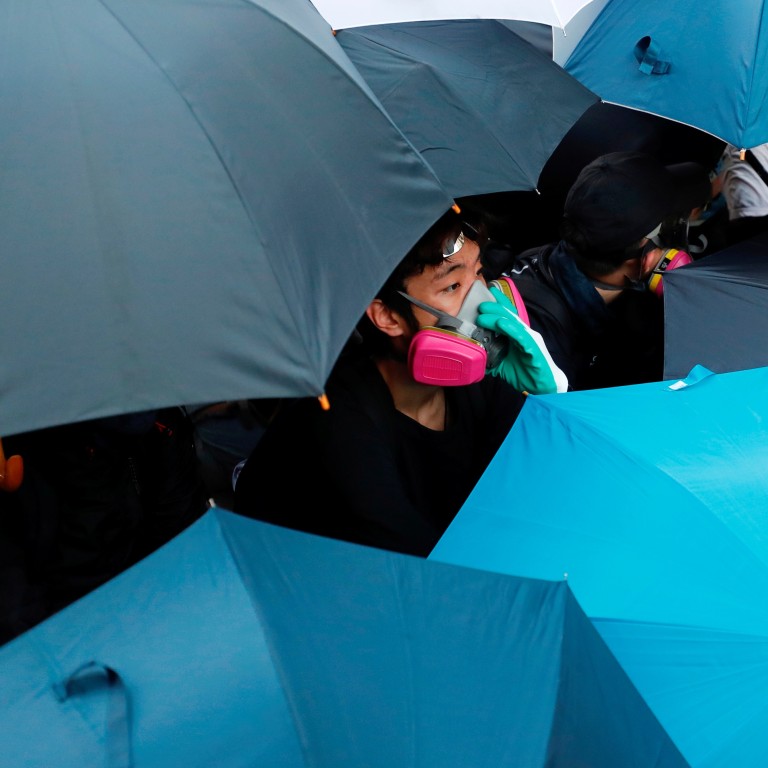
Hong Kong protesters on meeting their housing dreams: yes, thank you, but we want genuine universal suffrage too
- While Beijing has singled out housing issues as the root of the unrest in Hong Kong, an intricate web of other problems may have to be addressed
- Stories of protesters reflect that meeting all five demands may not end the impasse
The graffiti sprayed across a concrete barrier at a road in Kowloon’s Wong Tai Sin residential district declared: “7K for a house like a cell and you really think we out here scared of jail?”
At an underpass in Central, a message scrawled on the wall read: “12K for 120 sq ft and you think that’s OK?”
In a city roiled by unrest for more than three months, those lines might suggest that deep unhappiness with Hong Kong’s acute housing shortage and impossibly high property prices lie behind the unending, increasingly violent anti-government protests.
That, indeed, is a conclusion drawn by state-backed media on the mainland.
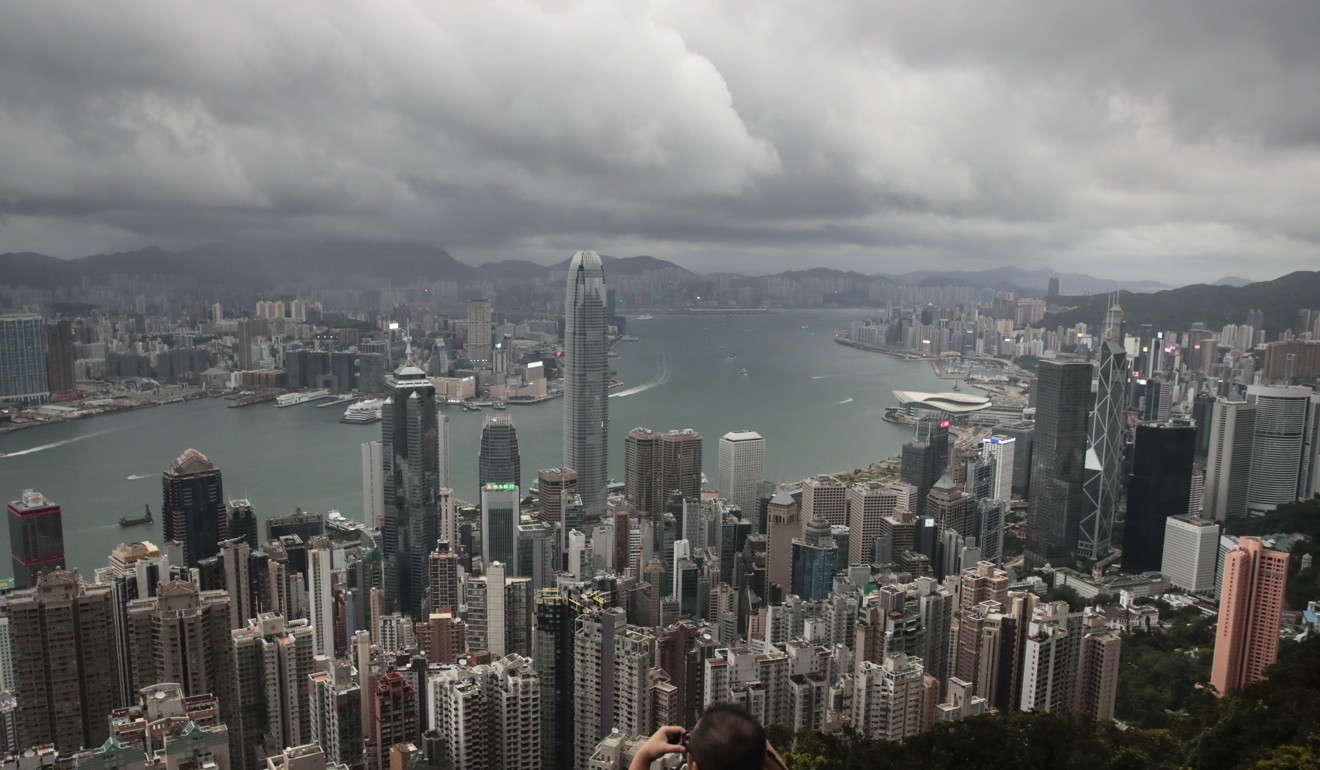
On September 13, the official Xinhua news agency and the People’s Daily, as well as the hardline Global Times tabloid simultaneously singled out unaffordable housing as a “root cause” of the protests in Hong Kong.
The Xinhua commentary went on to say that an underlying cause of the social unrest was the inability of young Hongkongers and those in the lower-income group to share in the city’s economic success.
But interviews by the Post with protesters suggest there is much more involved, and that the graffiti in Wong Tai Sin and Central provides a glimpse of only part of a bigger picture of grievances.
Are tiny homes at sky-high costs Hong Kong’s price for low taxes?
Rather than a single root cause, a combination of factors is driving Hongkongers onto the streets, including a growing sense of social and political injustice that has simmered for years, and a sense of frustration at developments in the city they call home.
Besides property prices, they list insufficient help for the underprivileged, inadequate medical sources, the stressful education system, the influx of mainland visitors, the difficulty of moving up the social ladder, as well as a growing feeling that Hong Kong’s freedoms are under threat, to explain why they are making their voices heard on the streets.
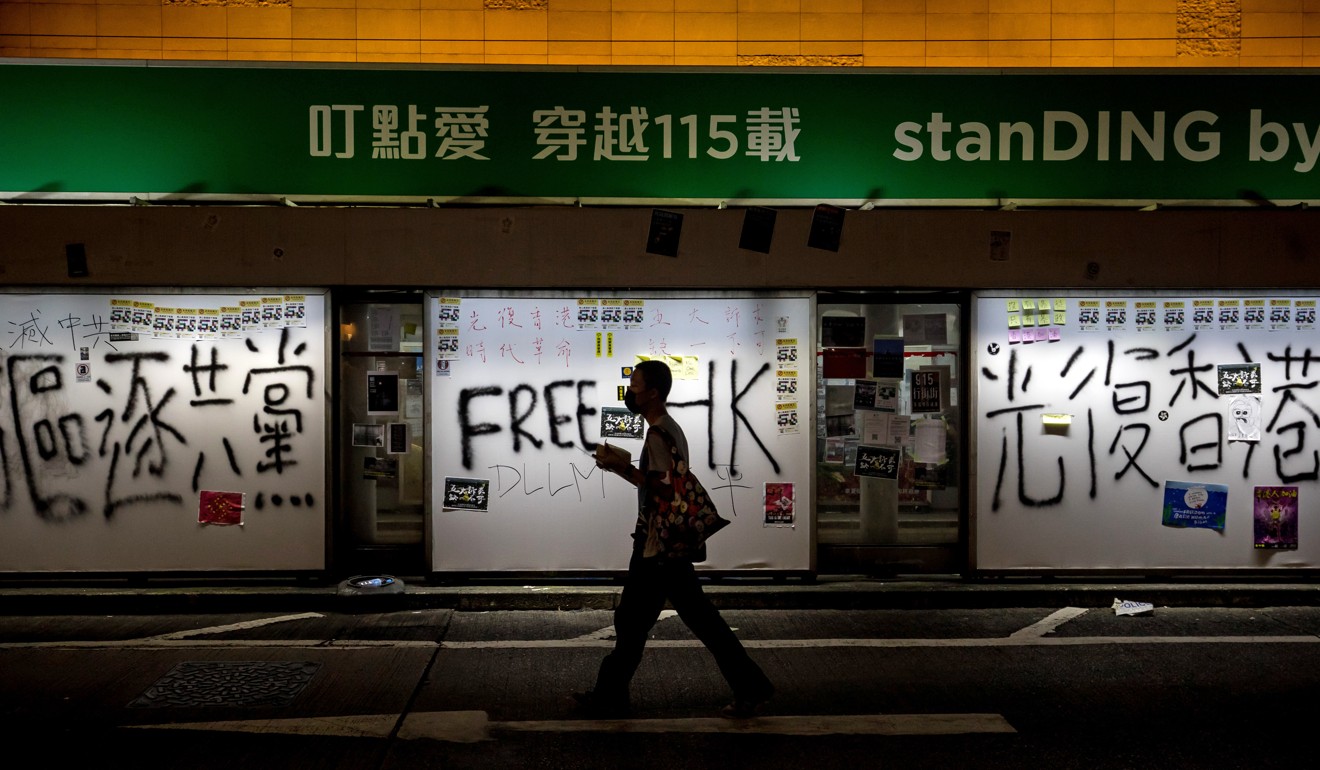
Not only the economy or housing
The protesters include many who are middle class, such as public hospital doctor Muk Lam. Lam, at the age of just 26, is already earning HK$970,000 (US$124,000) a year.
“The narrative in the mainland Chinese media is that those who have been taking part in the protests are fai ching,” she said, using a term that means “rubbish teenagers”, or youngsters with no hope.
“But Hong Kong’s unemployment rate is only about 3 per cent. Are high property prices a reason for the unrest? The economy is one reason, but just how big a reason is it? We cannot blame this on the economy entirely.”
Muk said there were many incidents over the years that caused public resentment and moved her to join the protests, as a first aid volunteer. Among them, she said, was the disqualification of six pro-democracy lawmakers from the Legislative Council in 2017 for taking their oaths improperly.
For Tom Cheung, 25, his anger with the city’s political system, among other things, has driven him to the streets.
The IT start-up employee is regularly on the protest front lines, decked out in helmet, mask and insulation gloves, and closest to the increasingly violent clashes with police. Cheung, who asked to be identified by a pseudonym, was one of those often seen extinguishing hot tear gas canisters fired by riot police.
Why are the young people of Hong Kong angry and deeply unhappy?
Asked why he joined the protests, he said: “It’s social injustice.”
High property prices reflect the “developer hegemony”, he added, referring to the enormous power wielded by Hong Kong’s big developers. “Other examples of injustice are income inequality, the deprivation of our rights to protest, and the problems with our infrastructure,” he said.
His anger at the political system stems from the make-up of the Legislative Council. Even though more than half the city’s voters chose pro-democracy candidates in the 2016 election, he said, the legislature is controlled by pro-government lawmakers. That is partly because about half of lawmakers come from the functional constituency, where a limited number of people in certain professions elect their representatives.
Pent-up frustration has given rise to more radical thoughts among protesters like Cheung, who are not satisfied that Chief Executive Carrie Lam Cheng Yuet-ngor announced earlier this month that her administration would withdraw the extradition bill which triggered the unrest in June.
Withdrawing the bill, which could have led to suspects being extradited to mainland China, among other jurisdictions, was one of five demands made by protesters.
They also want an independent inquiry to probe police conduct in tackling the protests; charges against arrested protesters to be withdrawn; an end to referring to protests as “riots”; and universal suffrage for elections of the city’s leader and lawmakers.
Cheung said, in all seriousness: “Only an armed revolution can really help us achieve the goal of ‘five demands, not one less’. If I am given a gun, I am ready to go out there and wage war.”
If I am given a gun, I am ready to go out there and wage war
There will be casualties, he said, but to him, that is the only way to persuade Beijing to allow direct elections in Hong Kong.
‘Given up hope to buy a flat’
Freelance writer and corporate trainer Winnie Ng, 32, said she has hated Hong Kong since she was young.
“I have always wanted to emigrate somewhere,” she said.
She feels like a second-class citizen, but she has no single, simple reason. When she described why she was unhappy in Hong Kong, she listed inequality in the city, discrimination against ethnic minorities, and having a Chief Executive who does not have the mandate to lead, because Lam was chosen by an elite group of 1,200 including many Beijing loyalists.
“Without genuine, universal suffrage, we won’t get a leader who will really carry out policies that benefit the people. Problems such as high property prices will only persist,” Ng said.
Home for Ng is a 300 sq ft private flat in Wan Chai, where she lives with her parents. Her tiny room has a foldable desk and a “very small” single bed.
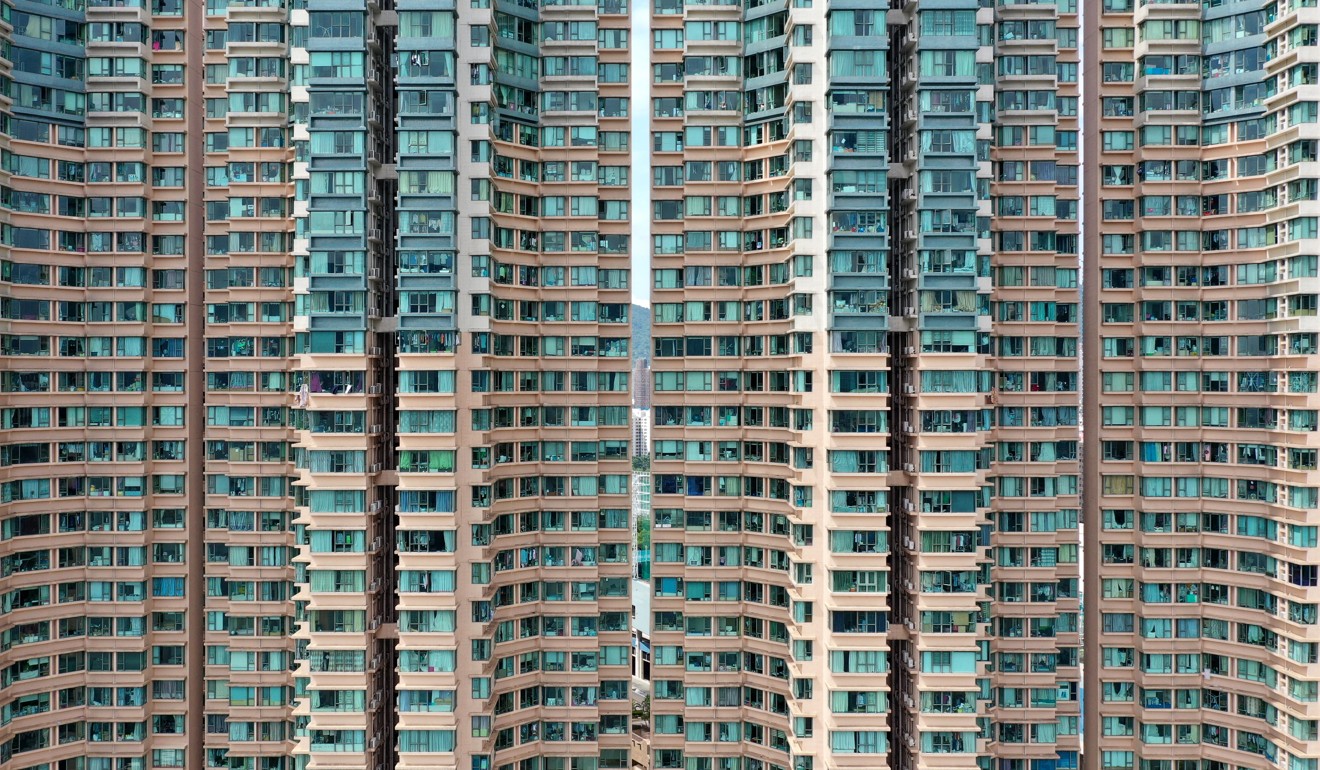
Rentals have shot up too. On Hong Kong Island, a 632 sq ft flat at South Horizons went this month for HK$26,300 a month – well over the HK$19,000 median income for a one-person household, as of last year.
Hong Kong’s urban planning leaves Ng fuming. When she was a child, there were only two hotels in the area where she lived. Now there are about 10.
Apart from joining protests, she and her friends have been distributing leaflets and other items during demonstrations, as well as organising counselling sessions for those who feel emotionally unstable.
Catrina Cheng, 29, a survivor of depression and obsessive-compulsive disorder, organises workshops to help protesters deal with emotional issues related to taking part in the demonstrations.
“Social problems are the main reason I joined the protests,” said Cheng, who makes a living running classes to make candles and other handicrafts.
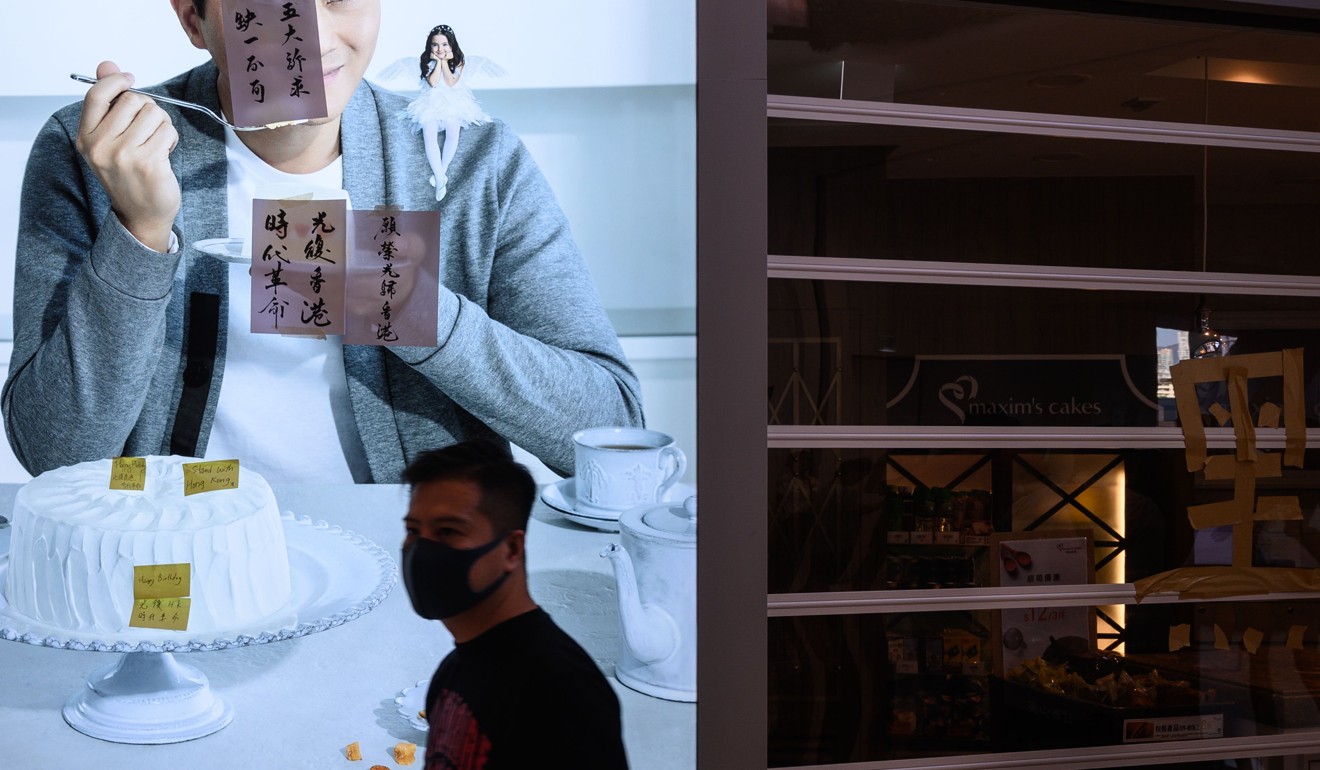
She also feels Hong Kong children are under too much stress to excel in their studies in an education system that makes parents pack their children’s weekends with tuition classes.
“I used to be an English tutor,” she said. “I spent so much time talking to the children. None of them were happy about their lives. There was a six-year-old who told me that he was rubbish, and his mother had told him so.”
Cheng lives with her parents in a 500 sq ft flat on the sixth floor of an old building that has no lift. The stairs are narrow and she fears her parents may have difficulties climbing up in a few years’ time.
“I have never thought of buying a flat,” she said. “I have completely given up that hope. As the saying goes, you must have done something really bad in your previous life to become a Hongkonger in this life.”
You must have done something really bad in your previous life to become a Hongkonger in this life
No easy solutions, no end in sight
The stories of these protesters reflect that, since the root cause of the current social unrest is a complex mix of factors stemming from the growing sense of social and political injustice, the government would struggle to put out the unrest even if Lam suddenly satisfies protesters’ four other key demands.
Dr Edmund Cheng Wai, a political scientist from Baptist University who has done interviews and focus group discussions with protesters, said the current movement might have been sparked by the extradition bill, but its causes ran much deeper.
“Young people just don’t see hope in their future,” he said.
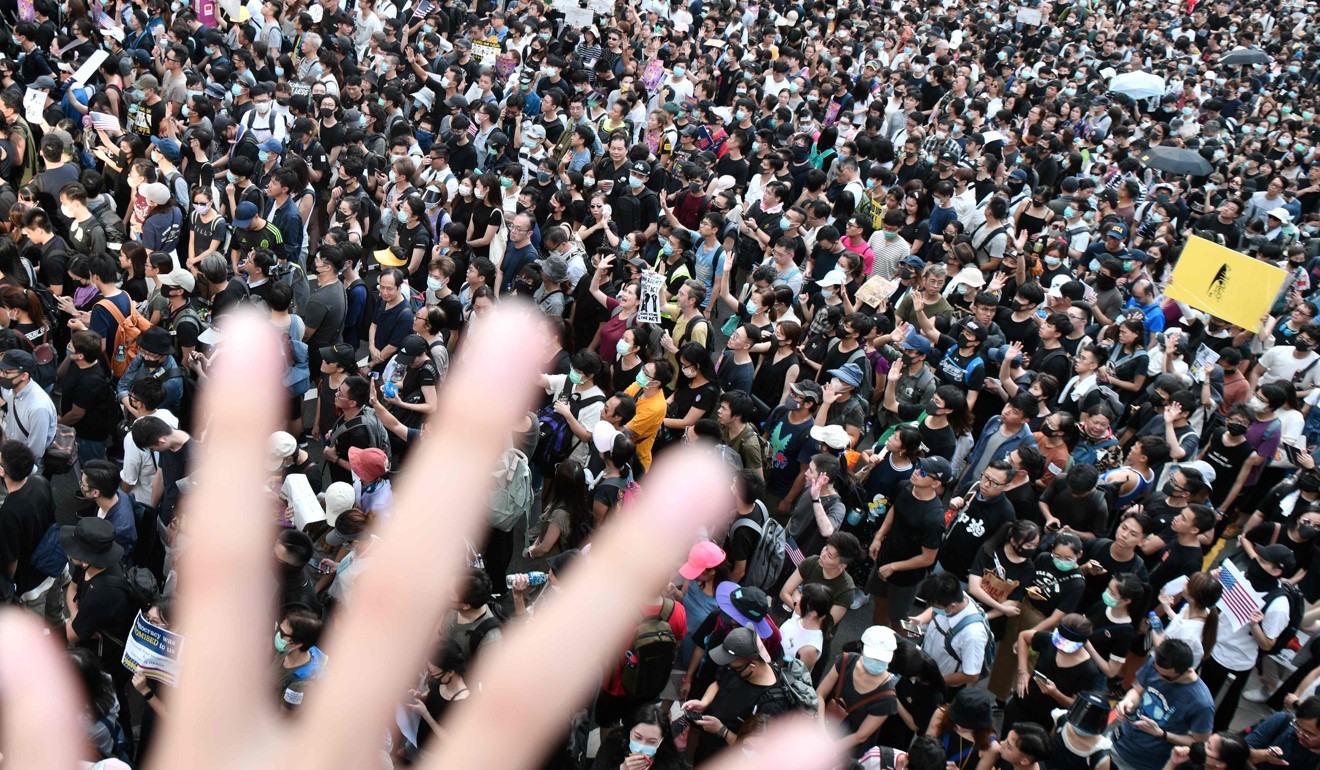
He said unless the government managed to deliver tremendous social change, the campaign’s momentum was unlikely to peter out the way the 2014 Occupy movement did after 79 days of protests which shut down several parts of Hong Kong.
Protester Ray Yip, 25, a part-time social worker, shared that view.
“The ‘umbrella movement’ didn’t bring much change to Hong Kong. We can’t let it happen again this time,” he said.
“The people are not happy with their lives. There are housing problems. They don’t have a sense of security living here. Fresh graduates are just making slightly more than HK$10,000. How can they afford a property?”
Rachel Lau, a second-year student at the University of Hong Kong, has joined the protests since June, defying her mother who fears she will be blacklisted from joining the civil service when she graduates.
But she said she was determined to continue protesting until the day Hong Kong had universal suffrage.
“If we don’t have universal suffrage, future chief executives chosen through the current political system may enact yet another bad law,” she said.

